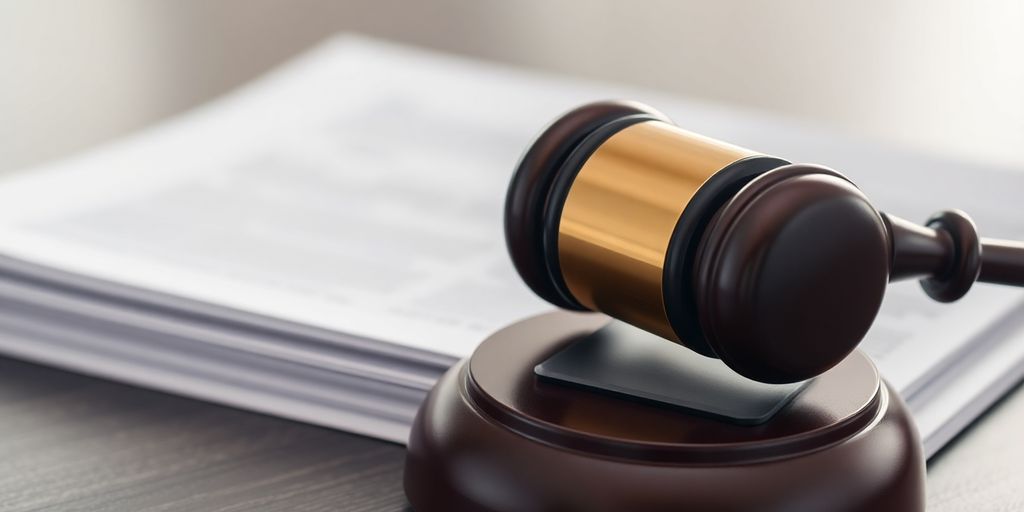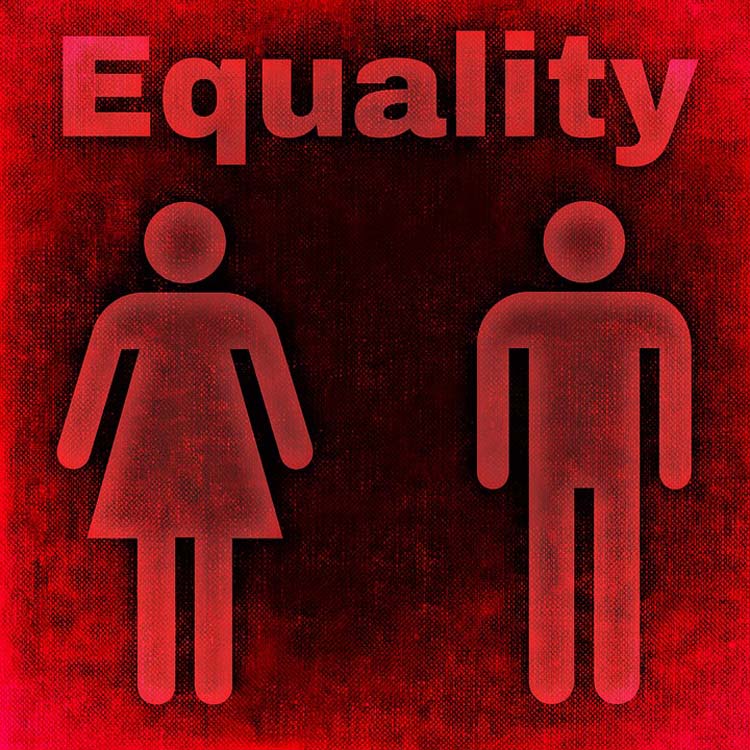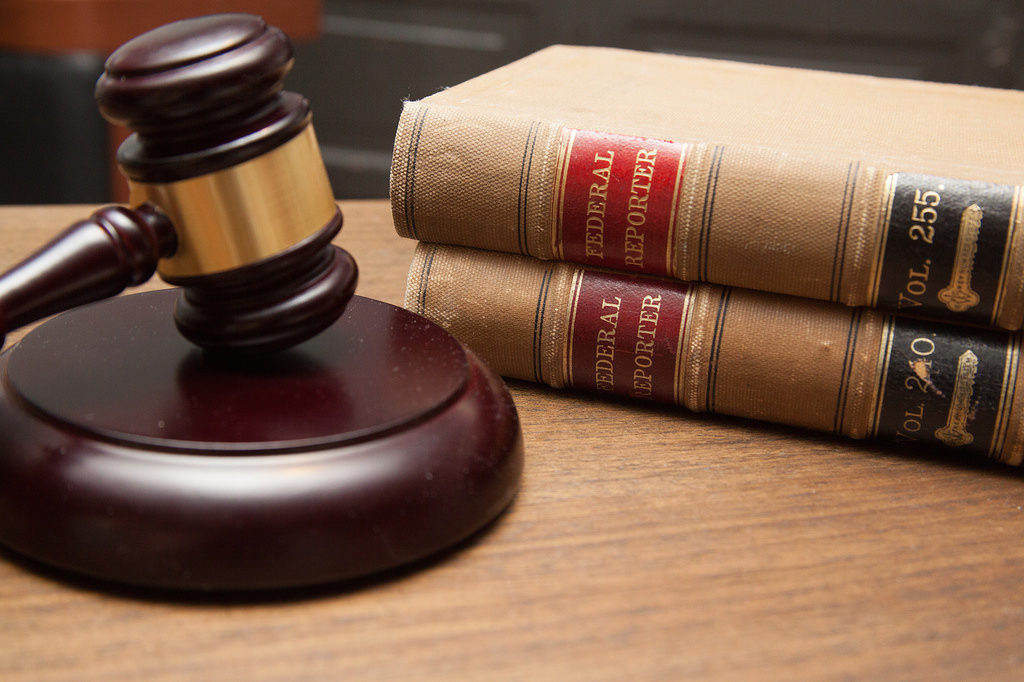Ever wondered what really goes on with those massive personal injury settlements you hear about? It’s not all courtroom drama and million-dollar checks. Personal injury lawyers in the USA have a lot to say about what actually happens when you’re injured and seeking compensation. From understanding the legal process to knowing how settlements are reached, there’s a lot more than meets the eye. Let’s break it down and see what’s true, what’s not, and how personal injury lawyers can make a difference.
Key Takeaways
- Personal injury settlements aren’t always as big as the headlines suggest. Most cases settle for much less.
- Lawyers who work on a contingency fee only get paid if you win, which means they’re motivated to get the best outcome.
- The severity of injuries and the clarity of liability heavily influence settlement amounts.
- State laws can greatly affect how much you might receive in a settlement.
- Hiring a personal injury lawyer often means a bigger settlement compared to handling the case on your own.
Understanding Personal Injury Settlements

What Constitutes a Personal Injury Settlement
A personal injury settlement is a financial agreement between the injured party and the party responsible for the injury. These settlements aim to compensate for medical expenses, lost wages, and other damages. Settlements are often preferred over trials because they provide a quicker resolution and less stress for the involved parties.
Common Misconceptions About Settlements
Many believe that personal injury settlements result in million-dollar payouts. While large settlements do happen, they are not as common as portrayed in the media. The amount depends on various factors, including the severity of the injury and the clarity of liability. It’s important to manage expectations and understand that most settlements are modest.
The Role of Personal Injury Lawyers USA
Personal injury lawyers USA play a crucial role in negotiating settlements. They gather evidence, assess the value of claims, and advocate for their clients’ best interests. Often working on a contingency fee basis, these lawyers ensure that clients only pay if they win their case. This arrangement motivates lawyers to work diligently towards achieving favorable settlements.
The Legal Process in Personal Injury Cases

Steps Involved in Filing a Claim
Filing a personal injury claim is like setting off on a journey. It starts with gathering all the facts about the incident—what happened, when, and how. You need to collect evidence like photos, witness statements, and medical reports. Then, you formally notify the party at fault, usually through a demand letter. This letter outlines your injuries, the damages you’re claiming, and the compensation you seek.
How Personal Injury Lawyers USA Assist
Personal injury lawyers are like your navigators in this complex process. They help you understand the legal landscape and ensure you don’t miss any critical steps. They negotiate with insurance companies on your behalf, aiming to secure a fair settlement. If negotiations stall, they prepare to take your case to court, fighting for your rights.
Timeline for Settlement
The timeline for settling a personal injury case can vary widely. Some cases wrap up in a few months, while others might drag on for years. Factors like the complexity of the case, the willingness of the parties to settle, and court schedules all play a role. Typically, once a settlement is reached, it takes about four to six weeks for the payment to arrive.
Every personal injury case is unique, and the path to resolution can be unpredictable. Staying patient and informed is key to navigating these legal waters successfully.
Factors Influencing Settlement Amounts
Severity of Injuries and Medical Costs
When it comes to personal injury settlements, the severity of injuries plays a massive role in determining the payout. More serious injuries typically lead to higher settlements because they often require extensive medical treatment and long-term care. For instance, if someone suffers a permanent disability, the compensation will likely be substantial to cover ongoing medical expenses and lost future earnings. Medical bills are a tangible measure of injury severity, so they heavily influence the settlement amount.
Impact of Liability and Negligence
Liability is about who is at fault. If it’s clear that the other party is entirely responsible for the accident, the settlement amount might be higher. But if there’s shared fault, the settlement could be reduced. The concept of negligence is crucial here. If you can prove the other party was negligent, you stand a better chance of securing a favorable settlement. However, if there’s any doubt about liability, it could complicate the case and affect the final settlement.
Role of Insurance Companies
Insurance companies are often the ones paying out settlements, so they play a key role in the process. They have their own methods for evaluating claims and determining what they believe is a fair payout. Sometimes, they might offer lower settlements initially, hoping claimants will accept quickly. It’s worth noting that insurance companies aim to minimize payouts to protect their bottom line. Thus, negotiating with them can be challenging, and having a lawyer might help in maximizing the settlement. In cases like slip and fall, insurance assessments can vary significantly based on the specifics of each case.
The Importance of Legal Representation
Benefits of Hiring Personal Injury Lawyers USA
When you’re tangled up in a personal injury case, having a lawyer by your side is like having a trusty guide through a maze. They know the ins and outs of the legal system and can help you navigate it without getting lost. With their expertise, they can handle paperwork, gather evidence, and negotiate with insurance companies to get you the compensation you deserve.
Contingency Fee Arrangements Explained
One of the biggest perks of hiring a personal injury lawyer is the contingency fee arrangement. This means you don’t pay a dime unless you win your case. Lawyers take a percentage of your settlement as their fee, which makes legal help accessible to everyone, regardless of their financial situation. It’s a win-win because the lawyer is motivated to get the best outcome possible.
How Lawyers Maximize Settlement Values
Lawyers have a knack for maximizing settlement values. They assess every detail of your case, from the severity of your injuries to the impact on your daily life. They know how to present this information convincingly to insurance companies or in court. Plus, they can call in expert witnesses to strengthen your case, ensuring you get the best possible settlement.
Challenges in Personal Injury Claims
Dealing with Insurance Adjusters
When you’re in the thick of a personal injury claim, dealing with insurance adjusters can feel like navigating a maze. These folks are trained to save their companies money, which often means offering settlements that might not fully cover your expenses. It’s crucial to be cautious and not rush into accepting the first offer. Instead, take the time to understand the full extent of your injuries and potential future costs. Remember, insurance adjusters aren’t on your side.
Common Legal Hurdles
Personal injury claims are often riddled with legal hurdles. From understanding complex legal terms to meeting strict deadlines, the process can be overwhelming. One of the biggest challenges is gathering sufficient evidence to support your claim, as missing documentation can weaken your case. Additionally, navigating the paperwork and legal procedures requires attention to detail and persistence.
Emotional and Financial Strain
The emotional toll of a personal injury claim can be significant. The stress of dealing with legal processes, combined with the physical pain from injuries, can be overwhelming. On top of that, there’s the financial strain. Medical bills pile up quickly, and if you’re unable to work, the loss of income can be devastating.
Going through a personal injury claim is not just about getting compensation; it’s about finding a way to manage the emotional and financial stress that comes with it.
Myths About Personal Injury Settlements
The Truth About Large Settlements
When you hear about personal injury cases, you might think everyone walks away with millions. The reality? Most settlements are nowhere near six or seven figures. Sure, the media loves to highlight those rare, massive payouts, but they’re not the norm. In fact, most personal injury settlements are much more modest. The amount you might receive depends on various factors like the severity of your injury and the evidence you have. It’s not just about hiring a lawyer and waiting for a big check.
Understanding Lawyer Fees
There’s a common belief that lawyers will take any case just to make a buck. But many personal injury lawyers work on a contingency fee basis. This means they only get paid if you win your case. So, if a lawyer agrees to take your case, it’s likely because they believe there’s a good chance of success. This setup can actually be beneficial for clients, as it means the lawyer is motivated to get the best possible outcome for you.
Media Misrepresentation of Settlements
The media often skews our perception of personal injury settlements. They focus on the outliers, those rare cases where someone gets a huge payout. But these stories don’t represent the majority of cases. In reality, most settlements are quietly negotiated and don’t make headlines. The truth is, each case is unique, and outcomes can vary widely based on the specifics involved.
It’s essential to approach personal injury claims with realistic expectations and understand that while large settlements do happen, they aren’t guaranteed. Having a skilled lawyer can improve your chances, but it’s important to focus on the facts of your case rather than media hype. For more insights, consider a free consultation with a personal injury lawyer to debunk these myths and get tailored advice.
Choosing the Right Personal Injury Lawyer
Qualities to Look For in a Lawyer
Selecting the right personal injury lawyer can feel like a daunting task. Experience and specialization are key factors to consider. You want someone who not only knows the law but has a track record in cases like yours. Communication skills are also essential. A lawyer who keeps you in the loop and explains things clearly can make a big difference. Lastly, check their reputation. Look for reviews or ask around to see if they have a good standing in the legal community.
Questions to Ask During Consultation
Before you hire a lawyer, it’s smart to ask a few important questions. Start with their experience: How many cases like yours have they handled? What’s their success rate? Then, discuss fees. Understand how they charge and what services are included. It’s also wise to ask about their approach to cases. Do they prefer to settle or are they ready to go to trial if needed?
Evaluating Lawyer Experience
When evaluating a lawyer’s experience, don’t just focus on the number of years they’ve been practicing. Consider the type of cases they’ve dealt with. A lawyer with extensive experience in personal injury claims will be more adept at navigating the complexities involved. Additionally, inquire about their familiarity with state laws, as these can greatly impact your case. A lawyer well-versed in local regulations will be invaluable.
Finding the right lawyer isn’t just about qualifications; it’s about finding someone you trust to fight for your rights. Take your time, do your research, and choose wisely.
The Role of Evidence in Personal Injury Cases
When it comes to personal injury cases, evidence is the backbone. Without solid evidence, your claim might not hold up. So, what kind of evidence are we talking about? Well, it includes things like photographs of the accident scene, witness statements, and any physical objects involved. It’s super important to gather this stuff as soon as possible. Memories fade, and scenes change, so the sooner you collect, the better.
- Photographs: Snap pictures of everything. This means the accident site, injuries, and any property damage.
- Witness Statements: Get contact info from anyone who saw the accident. Their accounts can be crucial.
- Physical Evidence: Secure any items that played a part in the incident. Think broken equipment or damaged vehicles.
Medical records are like the gold standard in personal injury cases. They show the extent of your injuries and the treatment you needed. These documents can make or break your case, so keep them organized and updated.
- Doctor’s Notes: These outline your injuries and recovery plan.
- Bills and Receipts: They prove the financial impact of your injuries.
- Ongoing Treatment: Keep records of any follow-up appointments or therapies.
Medical records not only track your physical recovery but also help in calculating fair compensation for your pain and suffering.
Getting witness testimonies can be a game-changer. They provide an unbiased perspective on the accident. But don’t stop there—expert opinions can also add weight to your case. These could be professionals like accident reconstructionists or medical experts who can testify about the impact of your injuries.
- Eyewitness Accounts: These are people who directly saw the incident occur.
- Expert Witnesses: Professionals who can provide insights based on their expertise.
- Accident Reconstruction: Sometimes, a detailed analysis of how the accident happened can be pivotal.
In the world of personal injury law, having a well-documented case is everything. From the moment the accident occurs, think about collecting evidence like your case depends on it—because it does. And remember, it’s not just about quantity but quality of evidence that counts.
Navigating the Settlement Process

Negotiation Strategies
When it comes to negotiating a personal injury settlement, having a clear strategy is key. Understanding the strengths and weaknesses of your case can make all the difference. Here are some tips for effective negotiation:
- Know your bottom line: Determine the minimum amount you are willing to accept before negotiations begin.
- Present compelling evidence: Use medical records, witness statements, and expert opinions to support your claim.
- Stay patient: Negotiations can be lengthy, so it’s important to remain patient and not rush into a decision.
When to Accept a Settlement Offer
Deciding when to accept a settlement offer is a critical step in the process. You need to weigh the offer against the potential outcome if the case goes to trial. Consider these factors:
- Evaluate the offer: Compare it to your estimated compensation based on your damages and suffering.
- Consider time and cost: Trials can be time-consuming and costly, so weigh these against the offer.
- Consult your lawyer: Always discuss the offer with your attorney, who can provide valuable insights.
The Possibility of Going to Trial
Sometimes, a settlement offer may not meet your expectations, and you might consider going to trial. Here’s what to keep in mind:
- Assess the risks: Trials are unpredictable, and there is no guarantee of a favorable outcome.
- Prepare thoroughly: If you decide to go to trial, ensure you have all the necessary evidence and documentation ready.
- Understand the timeline: Trials can extend the resolution process, sometimes taking months or even years.
It’s essential to approach the settlement process with a clear head and realistic expectations. The goal is to secure a fair compensation for your injuries and losses, whether through settlement or trial. Keep open communication with your lawyer to navigate this complex process effectively.
The Impact of State Laws on Settlements

Variations in State Regulations
State laws can significantly influence personal injury settlements. Every state has its own set of rules and regulations that determine how injury claims are handled. For example, some states follow “no-fault” insurance laws, meaning your own insurance pays for your injuries regardless of who is at fault. Others operate under “fault” systems, where the party responsible for the accident is liable for damages. These variations mean that similar cases might have very different outcomes depending on where they occur.
How State Laws Affect Compensation
The compensation you might receive in a personal injury case can vary widely due to state laws. Some states have caps on certain types of damages, like pain and suffering or punitive damages, which can limit the amount you can recover. States also differ in their statutes of limitations, which set deadlines for filing claims. Missing these deadlines could mean losing the right to pursue compensation altogether. Understanding these laws is crucial for anyone involved in a personal injury case.
The Role of Personal Injury Lawyers USA in Different States
Personal injury lawyers play a key role in navigating the complexities of state laws. They have the expertise to interpret how these laws apply to individual cases and can offer guidance on the best course of action. In states with more restrictive laws, a knowledgeable lawyer can be invaluable in maximizing settlement amounts. They can also help ensure that all legal procedures are followed correctly, safeguarding against any potential pitfalls that could jeopardize a claim.
It’s essential to understand that state laws are not just about legal formalities; they directly impact the potential outcomes of personal injury cases. Having a lawyer who understands these nuances can make a significant difference in the settlement process.
Understanding Pain and Suffering Compensation
Calculating Pain and Suffering
When it comes to personal injury cases, calculating pain and suffering isn’t as straightforward as adding up medical bills. It’s a bit more nuanced. The court often uses a multiplier method, where they take the total of your tangible losses and multiply it by a number that reflects the severity of your distress. This number can vary, sometimes between 1.5 to 5, depending on how much your life has been impacted.
Factors Considered in Compensation
Several factors play a role in determining the amount you might receive for pain and suffering:
- Severity of the Injury: More severe injuries typically lead to higher compensation.
- Impact on Daily Life: How has the injury affected your ability to work or enjoy life?
- Duration of Recovery: Longer recovery times can increase compensation.
Examples of Pain and Suffering Awards
To give you an idea, here are some examples:
- A person with a broken leg might receive a smaller award compared to someone who suffered a spinal injury.
- Emotional distress following a traumatic event can also lead to significant compensation.
It’s crucial to remember that each case is unique. The compensation for pain and suffering can vary widely based on individual circumstances and the specifics of the case.
When it comes to understanding how pain and suffering are compensated, it’s important to know your rights. If you’ve experienced pain due to someone else’s actions, you might be entitled to compensation. Don’t wait to find out what you deserve! Visit our website today to learn more about your options and how we can help you navigate this process.
Wrapping It Up
So, there you have it. Personal injury settlements aren’t always the big payday they’re made out to be. Sure, some folks hit the jackpot, but that’s not the norm. Most cases settle for a lot less than you might think. Lawyers play a big role in this, and having one can really boost your chances of getting a fair deal. But remember, it’s not just about the money. It’s about getting back on your feet and moving forward. If you’re ever in a situation where you need to file a claim, make sure you have the right support and know what to expect. It’s a journey, and having the right guide can make all the difference.
What is a personal injury settlement?
A personal injury settlement is money paid to someone who got hurt because of another person’s actions. It’s meant to help cover medical bills, lost wages, and other expenses.
Do all personal injury cases end in huge settlements?
Not all personal injury cases end with big payouts. Many settlements are modest and depend on the injury’s severity, the case details, and the insurance company’s policy.
What is a personal injury settlement?
A personal injury lawyer helps you understand your rights, gathers evidence, negotiates with insurance companies, and fights for the best possible settlement for you.
How long does it take to settle a personal injury case?
The time it takes to settle a personal injury case can vary. Some cases are resolved in a few months, while others might take years, especially if they go to trial.
What factors affect the settlement amount?
The settlement amount can be influenced by injury severity, medical costs, liability, negligence, and the insurance company’s willingness to pay.
Are lawyer fees expensive in personal injury cases?
Most personal injury lawyers work on a contingency fee basis, meaning you only pay if you win or settle the case. This makes legal help more accessible.
What should I look for in a personal injury lawyer?
When choosing a personal injury lawyer, look for experience, a good track record, clear communication, and someone who makes you feel comfortable and confident.
Can I handle a personal injury claim on my own?
While it’s possible to handle a claim on your own, having a lawyer usually increases the chances of a better settlement. Lawyers know the legal system and can navigate complex cases.









